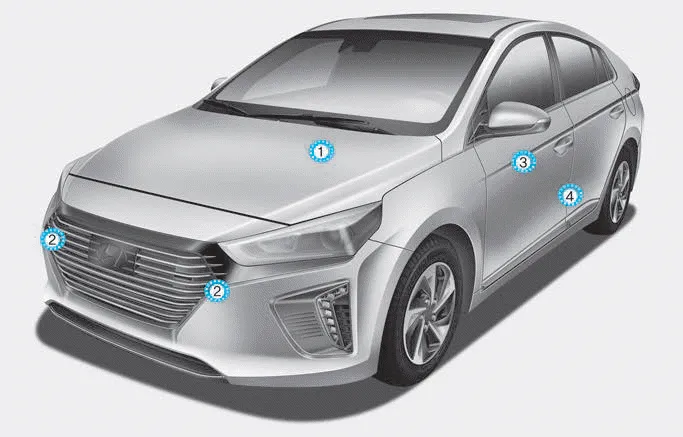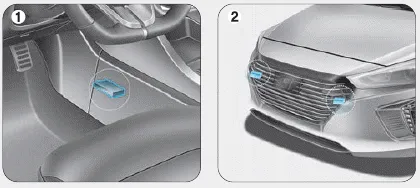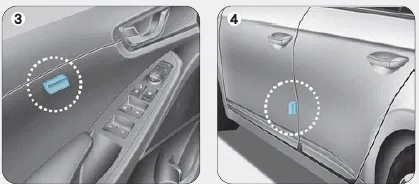Hyundai Ioniq (AE): Air bag - Advanced supplemental restraint system / Why Didn't My Air Bag Go Off in a Collision?
Air bags are not designed to inflate in every collision. There are certain types of accidents in which the air bag would not be expected to provide additional protection. These include rear impacts, second or third collisions in multiple impact accidents, as well as low speed impacts. Damage to the vehicle indicates a collision energy absorption, and is not an indicator of whether or not an air bag should have inflated.
Air bag collision sensors
WARNING
To reduce the risk of an air bag deploying unexpectedly and causing serious injury or death:
- Do not hit or allow any objects to impact the locations where air bags or sensors are installed.
- Do not perform maintenance on or around the air bag sensors. If the location or angle of the sensors is altered, the air bags may deploy when they should not or may not deploy when they should.
- Do not install bumper guards or replace the bumper with a non-genuine HYUNDAI parts. This may adversely affect the collision and air bag deployment performance.
- Place the Engine Start/Stop button in the OFF or ACC position when the vehicle is being towed to prevent inadvertent air bag deployment.
- Have all air bag repairs conducted by an authorized HYUNDAI dealer.

1. SRS control module/Rollover sensor
2. Front impact sensor
3. Side pressure sensor
4. Side impact sensor


Your vehicle is equipped with an Occupant Classification System (OCS) in the front passenger's seat. Main components of the Occupant Classification System A detection device located within the front passenger seat cushion.
Front air bags Front air bags and the driver's knee air bag are designed to inflate in a frontal collision depending on the severity of impact of the front collision.
Categories
- Manuals Home
- Hyundai Ioniq Owners Manual
- Hyundai Ioniq Service Manual
- Transmission Gear Oil. Repair procedures
- Engine Control/Fuel System
- How to Connect Portable Charger (ICCB: In-Cable Control Box)
- New on site
- Most important about car
